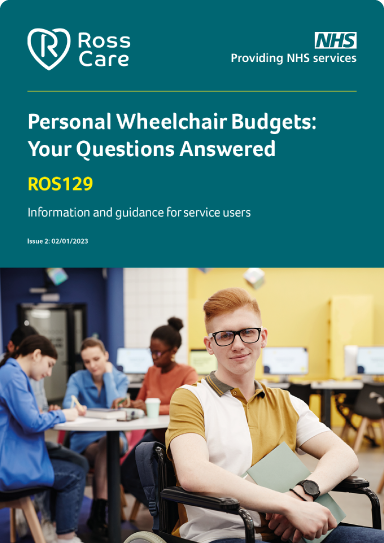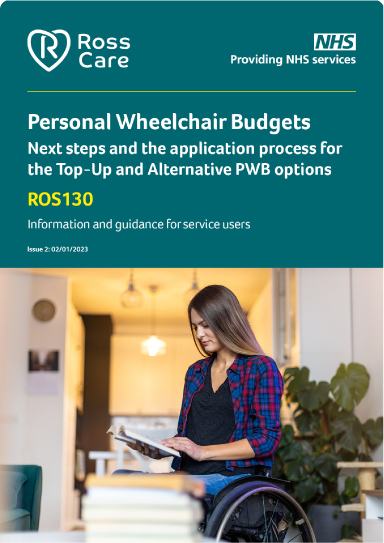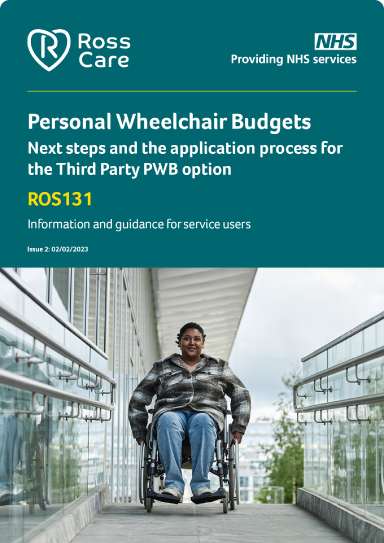You will be shown the free NHS wheelchair that would be prescribed to meet your individual clinical needs. This will be from a range that has already been agreed with service commissioners. The value of this wheelchair is the value of your PWB. If you accept this wheelchair, there will be no cost to you.
This wheelchair remains the property of the Wheelchair Service and the Wheelchair Service will carry out all necessary maintenance and repairs, free of charge.












